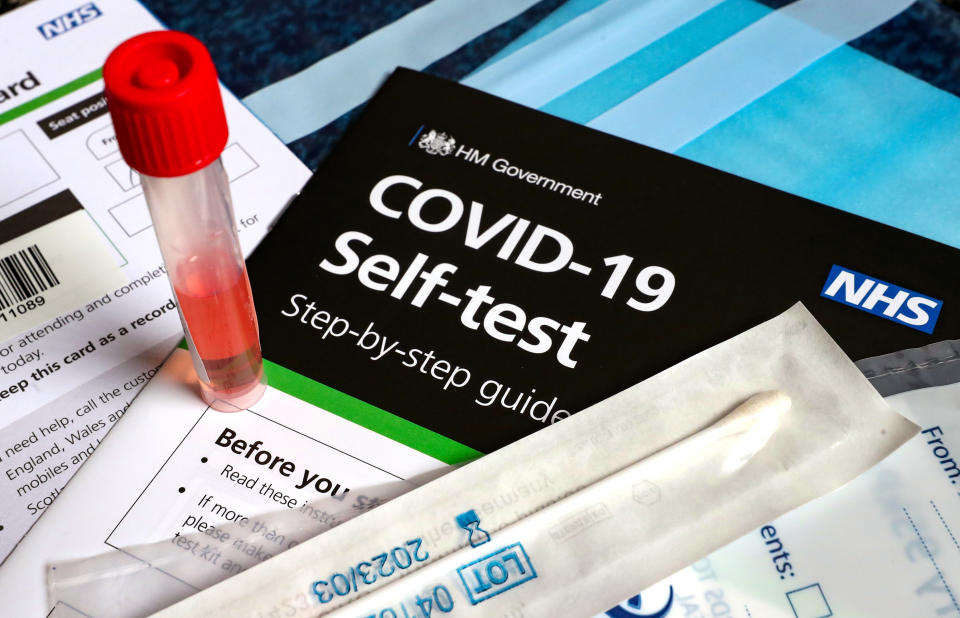Four urgent changes Boris Johnson needs to make to prevent major COVID-19 death toll in winter

Experts have told the government what steps it should take to avoid the grim possibility of 120,000 deaths in a coronavirus resurgence this winter.
Four policies have been set out by the Academy of Medical Sciences, which said the six-figure death toll could be reached over nine months in a worst case scenario if a second wave of hospital admissions takes place.
The report says a second wave could be worse than the initial outbreak seen in spring, and highlights challenges including a winter flu outbreak, disruption to hospitals and care systems and a backlog of non-COVID health cases.
More than 44,000 people have died after testing positive for COVID-19 in the UK, with 291,000 infections recorded since the outbreak began.
The report outlines four key tasks to reduce coronavirus’ impact later in the year, and says there is a “need for urgent preparation to mitigate the risks of a particularly challenging winter”.
Minimise the coronavirus’ spread in communities
The report states measures being emphasised now, such as physical distancing, wearing face coverings, regular hand washing and participating in the government’s test and trace system must all continue.
Identifying people who are struggling to stick to the government’s coronavirus measures will require engagement and consideration should be given to using incentives, including financial ones, the report adds.

It says a focus on communities and people who are more vulnerable to the coronavirus will be key, especially those in poor quality housing and overcrowded homes.
The report says that “more time spent indoors will favour the spread” of the coronavirus.
A public information campaign should be launched in autumn about how to reduce transmission of COVID-19 and providing guidance on how to keep indoors safer should be issued.
This includes information about heating, ventilation and humidity.
The test and trace system must also be “significantly” expanded to deal with increased demand over winter, the report adds.
Make hospitals and care homes safer
Preventing infections in hospitals and care homes must be a priority, the report says, and investigations and analysis of how an outbreak starts in those settings will be necessary.
Proper provision and training in the use of personal protective equipment and other anti-infection measures must be taken, with as much use of remote consultations as possible, the report says.
Patients who are discharged into the community or care should be tested and quarantined and more rehabilitation support for people who had COVID-19 should be provided.
Improve monitoring of COVID-19, influenza and other winter diseases
A “comprehensive, population-wide, near-real-time, granular health surveillance system” should be in place to tackle local coronavirus outbreaks should be maintained, the report says.
Large-scale population surveys used to make estimates of infections will be useful, with a body, such as the recently-announced Joint Biosecurity Centre, overseeing and coordinating outbreak data.
Information will need to be shared between local and national levels and data should be made available to the research community, the report adds.
Minimise the impact of influenza
Health and social care workers must receive the flu vaccination and “priority groups” should too, the authors say.
Read more: WHO warns that coronavirus crisis may get 'worse and worse'
They write: “This will require creative approaches to delivering the programme while minimising the risk of transmission and ensuring an adequate supply of vaccines.”
Effective use of antivirals can mitigate the impact flu will have in winter, the report concludes.
Coronavirus: what happened today
Click here to sign up to the latest news and information with our daily Catch-up newsletter

 Yahoo News
Yahoo News 

